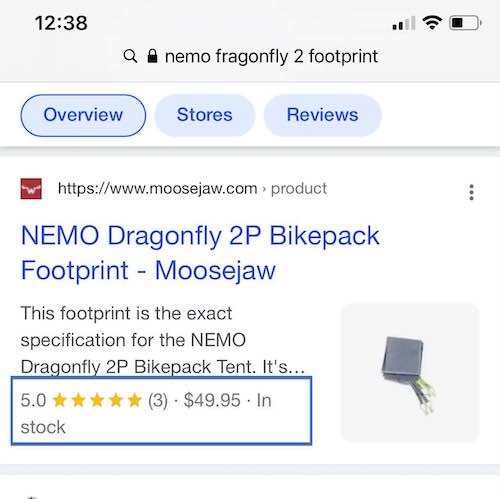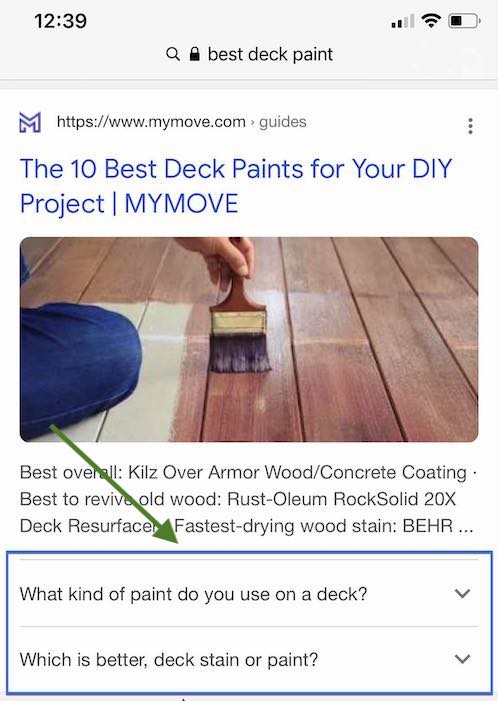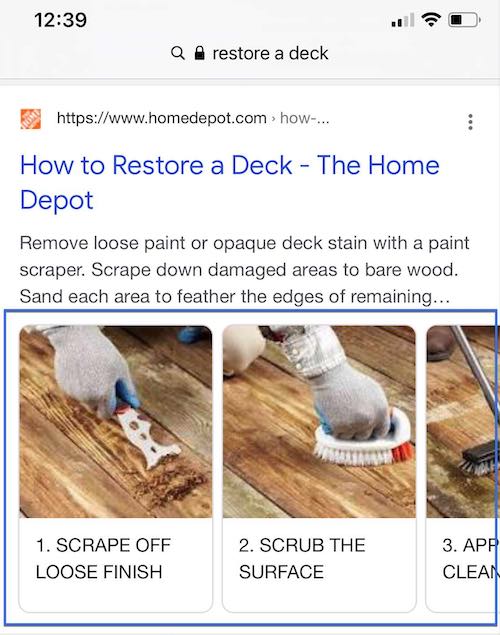Rich snippets are additional details in organic listings that stand out in search results. Ratings, prices, FAQs, videos — all are examples of rich snippets.
“Structured markup” is programming code that creates rich snippets. Any website can contain structured markup — Schema.org is the most popular type. Thus rich snippets are entirely under a site’s control.
Rich snippets appear on desktop and mobile search results, but they usually are more impactful on a mobile.
Rich Snippets for Product Pages
There are many Schema.org “vocabularies,” but only a few impact the appearance of an organic search listing. Even fewer apply to an ecommerce product page. They are:
- Product schema contains the item’s price, star rating, and availability.
- FAQ schema is a list of common questions and answers.
- How-to schema is step-by-step instructions.
- Video schema shows a video thumbnail.
Implementing any of these depends largely on your content management system. Most CMSs and ecommerce platforms facilitate the use of rich data. WordPress and WooCommerce have plugins. Shopify has unique schemas.
Merchants without programming expertise should not attempt to code rich markup. Instead, work with your platform’s tools and integrations.
Prioritizing Rich Snippets
Here’s a rundown of prioritizing product page options.
Product rich snippets were among the first supported by Google. It is the most popular, and the one Google keeps a close eye on. The main rules are (i) use it for an actual product page, not categories, and (ii) show star ratings only from the reviews you collect. Star ratings are the best part of product schemas. They match commercial intent perfectly and attract lots of clicks.

Product rich snippets match commercial intent. This example contains star ratings, price (“$49.95”), and availability (“In stock”).
—
FAQ rich snippets are a good option if two or more questions are answered on the product page. However, if you use both product and FAQ schema, Google will usually show only the product schema. In my experience, FAQ snippets are typically the most clicked. But I’d stick with product snippets because of the shoppable intent. Use FAQs if product schema is unavailable.

FAQ rich snippets are often the most clicked, but they don’t typically appear alongside product schemas.
—
How-to rich snippets are not the best for product pages because they don’t always reflect commercial intent. But how-to schemas can help product pages rank for informational queries. I’ve not seen how-to and product snippets combined in a single listing. So don’t bother with how-to schemas if ratings and reviews are marked up.

How-to rich snippets can help product page rank for informational queries, but they don’t typically reflect commercial intent.
—
Video rich snippets increase on-page engagement from searchers clicking and watching. If you have videos on your product pages, consider using this type of schema. Plus, it combines nicely with product schema — you may get both in a single organic listing.

Video rich snippets combine nicely with product schema.
Boost Traffic
Structured-data markup such as Schema.org can greatly enhance organic search listings. Implementing rich markup is free and can permanently boost your search traffic.





